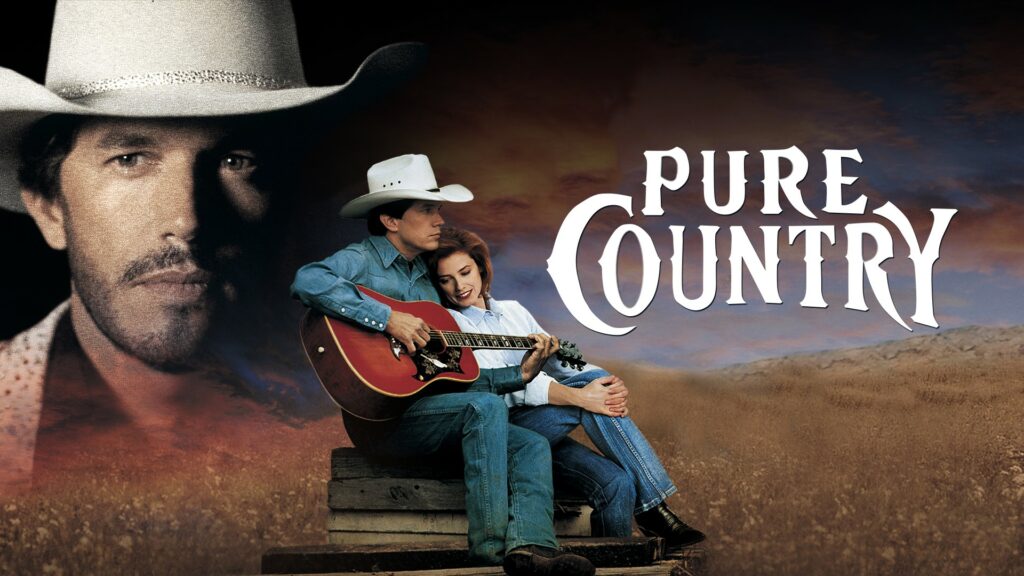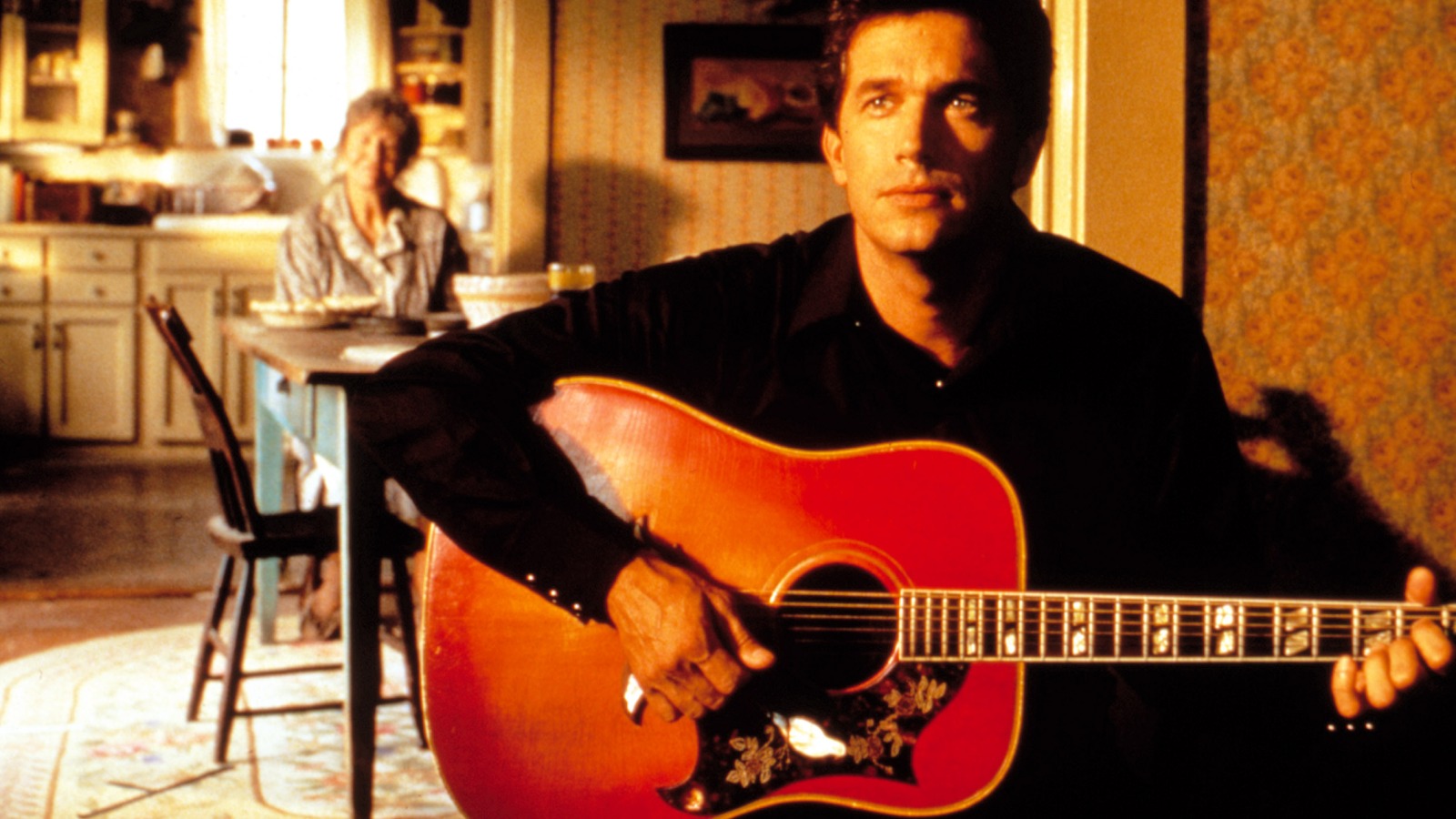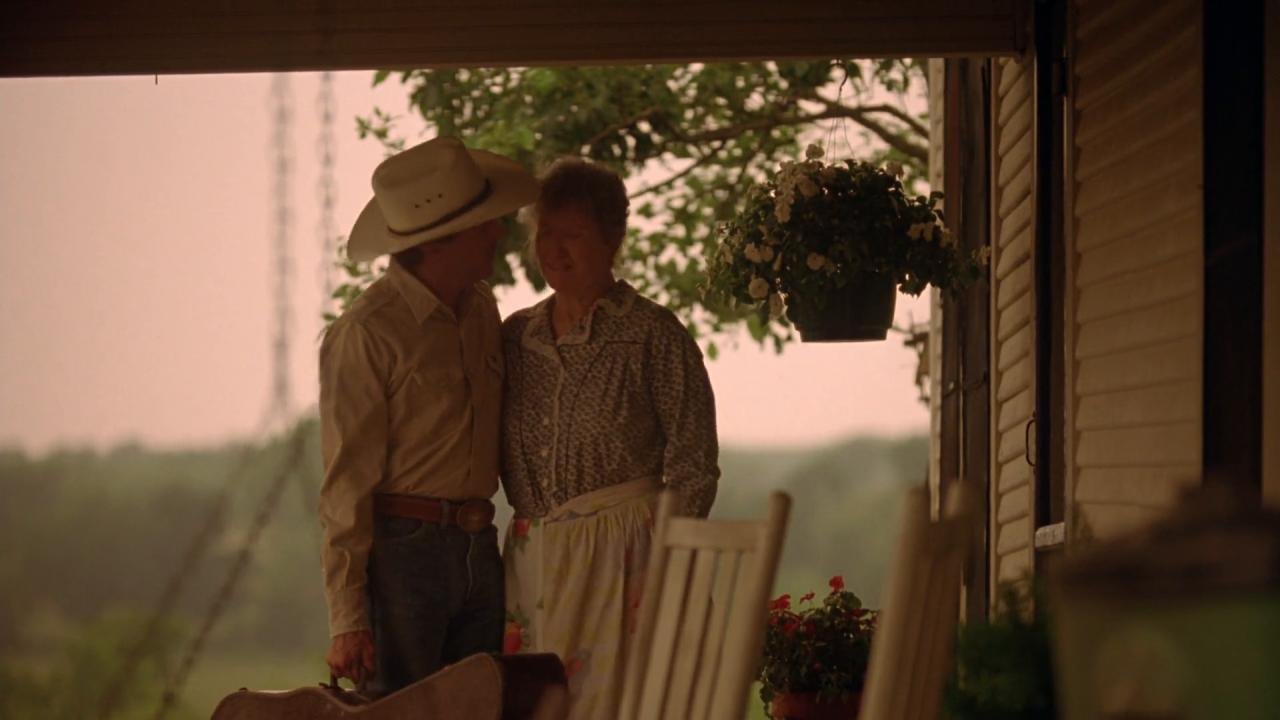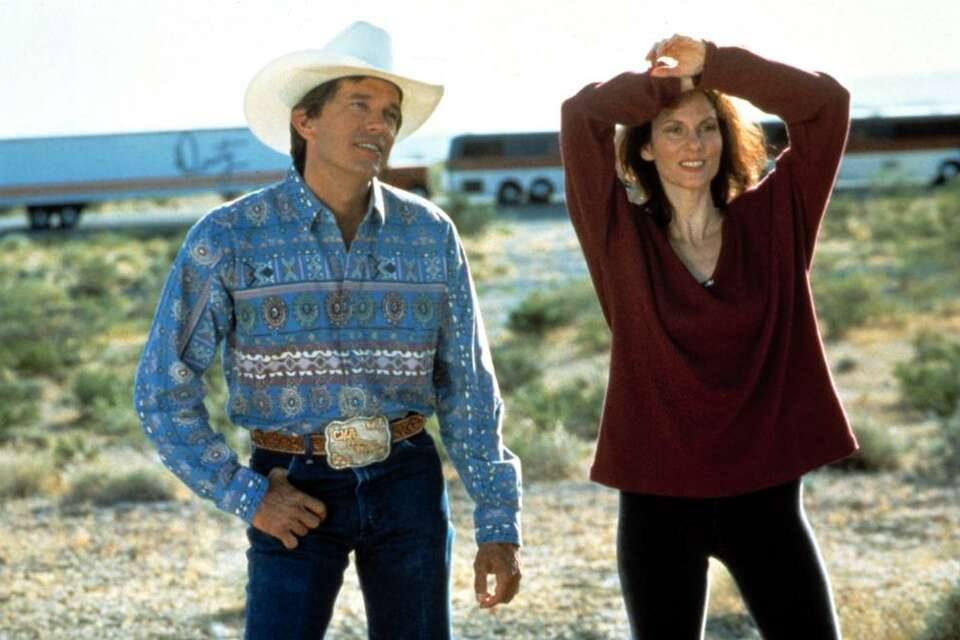Pure Country (1992)

Pure Country (1992) is a musical drama film directed by Christopher Cain, starring George Strait in his acting debut. Set against the backdrop of country music, the film tells the story of a successful but emotionally troubled country singer, Dusty Chandler, who seeks a return to his roots and true self. Alongside Strait, the film features a talented cast, including Lesley Ann Warren, Isabel Glasser, and Kyle Chandler. With its heartfelt performances, memorable music, and exploration of personal redemption, Pure Country has become a beloved classic in the country music genre.
The story follows Dusty Chandler (George Strait), a country music superstar who is growing weary of the manufactured image that his record label and manager have created for him. Despite his fame and fortune, Dusty feels disconnected from his true self and the music that originally inspired him. After a confrontation with his manager, Dusty quits the glitzy world of stardom and retreats to a small Texas town. There, he begins to reconnect with his past and discovers a simpler, more authentic life. Along the way, he forms new relationships, including a romantic connection with Harley Tucker (Isabel Glasser), and learns to embrace the music and life that first brought him joy.
Pure Country explores themes of self-discovery, the search for authenticity, and the pressures of fame. The film’s central theme is about returning to one’s roots and finding personal fulfillment outside of the superficial expectations of fame. Dusty’s journey is one of reconciliation with both his personal and professional life, as he struggles to balance the demands of being a public figure with his desire for a more meaningful existence. The film also touches on the power of music as a form of self-expression and the way it can heal and connect people to their true selves.

The character of Dusty Chandler, played by George Strait, is at the heart of the film, and his development is both compelling and relatable. Initially portrayed as a disillusioned celebrity, Dusty’s journey from fame to self-discovery reveals a man who longs for something deeper than the empty glitz of stardom. Strait’s portrayal of Dusty is nuanced, capturing the internal conflict and vulnerability of a man caught between success and personal happiness. The supporting characters, particularly Harley Tucker (Isabel Glasser) and Dusty’s manager (Lesley Ann Warren), also contribute to Dusty’s evolution, offering different perspectives on his life and choices.

Christopher Cain’s direction in Pure Country effectively captures the rural, small-town atmosphere of Dusty’s journey. The cinematography highlights the contrast between the bustling, artificial world of the music industry and the peaceful, authentic life Dusty seeks in the countryside. The use of wide shots of the Texas landscape and intimate close-ups during key moments of personal reflection underscores the emotional weight of Dusty’s transformation. Cain’s direction allows the film to maintain a steady pace, balancing the drama of Dusty’s personal struggles with the heartwarming moments of his journey back to himself.

In conclusion, Pure Country is a heartfelt and inspiring film that explores the themes of fame, identity, and the quest for authenticity. Through George Strait’s strong debut performance, a memorable soundtrack, and a relatable story of self-discovery, the film resonates with anyone who has ever felt the pressures of success or longed for a more genuine life. While it may be categorized as a country music film, its universal themes and timeless message about returning to one’s roots have made it a beloved classic. Pure Country remains a testament to the power of music and the importance of staying true to oneself in the face of life’s challenges.











